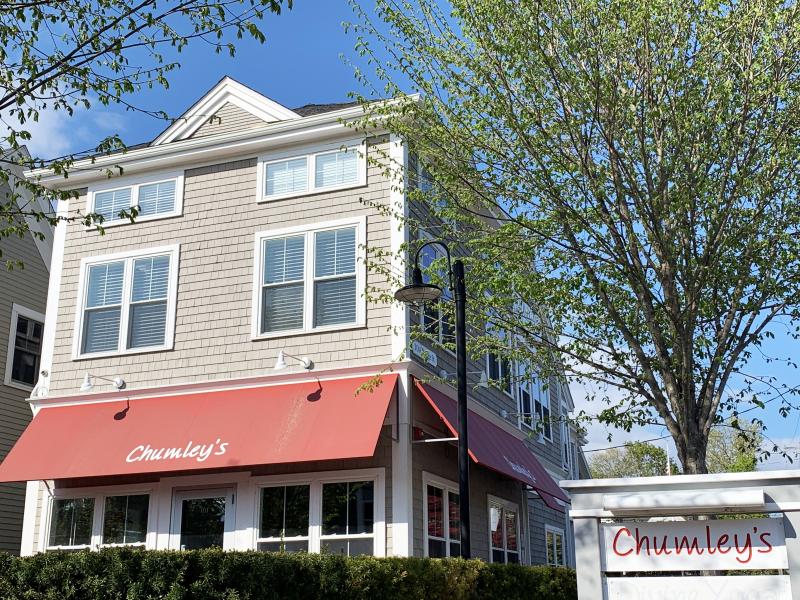Labor shortage: Hiring woes affect Dartmouth businesses
As local businesses gear up to run at full capacity after safety guidelines relax at the tail end of the pandemic, many are in the midst of a different Covid-related crisis: No one is applying.
Although the labor shortage is affecting a variety of industries, restaurants and retailers are among the hardest hit.
One establishment — Chumley’s in Padanaram — announced last week it would be permanently closing its doors, in part because management was “unable to find quality staff for this season,” according to a Facebook post from the restaurant.
“It’s really bad,” said Jody Cote, General Manager at Farm & Coast Market, on the labor problem. “It’s about 300% worse than ever.”
Cote said that due to a lack of workers, the combination restaurant/market may have to limit its hours — just as the season gets underway and vaccinated customers can dine in and shop at unrestricted capacities.
“The busier we are, the harder it is to stay fully operational,” she noted. “If you don’t have the help to serve the customer, you’re defeating the purpose of being open, because you’re upsetting the customer.”
She noted that it’s not just the food service industry, either.
“Supermarkets are having the same problem,” Cote said. “Companies that we buy from, truck drivers, people picking crops on farms.”
But Cote said she isn’t sure why hiring is suddenly a struggle.
“I’m sure some of it has something to do with the stimulus,” she noted. “I don’t know if people still feel in danger because of the pandemic and they’re still not comfortable.”
She added, “I don’t think it’s one reason, I think it’s many reasons.”
Other managers place the blame squarely on higher unemployment benefits during the Covid pandemic.
In 2020, those on unemployment received an extra $600 per week from CARES Act funding.
Now — after a brief hiatus followed by a second round of stimulus funding — it is an extra $300 per week.
“We’re getting much fewer applicants,” said Kaylie Pacheco, Chief Operations Officer for Dicky’s Clam Shack on State Road and another location in Rehoboth. “We normally get tons of applications — this year, not so much.”
Pacheco attributed the lack of applicants to higher unemployment benefits during the pandemic.
“People are lazy,” she said. “Why would they work if they don’t need to? They're getting paid to sit on their ass at home.”
Despite the pervasive belief that higher benefits keep people unemployed, early evidence suggests the extra benefits in 2020 had a negligible impact on employment rates.
In a paper published in February, UMass Amherst economist Arindrajit Dube examined the effect on employment after the $600 per week stimulus expired last July.
“I find little impact of job gains from the benefit reduction,” Dube wrote. “Overall, the weight of evidence seems to suggest that the unprecedentedly generous [unemployment] benefit levels during the Covid crisis did not have any substantially negative effect on jobs.”
If not unemployment benefits, fear of Covid may still be a factor — particularly for more public-facing positions like in restaurants and retail.
But whatever the reason, it seems only smaller or family-based businesses remain untouched.
Dawn Thibeault, office manager at Medeiros and Sons Construction, said that the Dartmouth company is not really experiencing much of a problem.
“We’ve got the same people that have always been working here,” she said with a smile, adding that the firm is still hiring more truck drivers.
Supervisor at Cardoza’s Wine and Spirits Sunny Patel said that while the family-staffed store is fine for now, he is keeping tabs on the issue.
“It’s a problem for each and every business,” he said. “Unemployment pays more than workers.”
Other sectors are also affected — and some employers are priced out of the competition.
“I know a few farmers are having trouble for sure,” noted Andrew Thornhill from Silverbrook Farm. But he added that due to Silverbrook’s small size, the farm was mostly unaffected.
Susan Murray from The Flying Carrot Farm said that they have “certainly” gotten fewer applicants this year.
“We’re looking to add another six employees,” she noted. “Everyone I’ve talked to is having trouble hiring.”
Murray said that many businesses are competing for workers right now, and while some are increasing wages to attract talent, others can’t afford to do the same.
“We’re sort of competing against places that might pay more,” she said.
Like Cote, Murray believes there are myriad reasons for the shortage.
“I don’t think you can point to any one reason,” she said. “A lot of people like to say it’s because of the amount of money people are getting from unemployment — I don’t think that’s the full story.”
She noted that many businesses are competing for workers right now.
But in the long term, Murray said, “I think we’ll be okay,” adding with a laugh, “We always land on our feet!”














